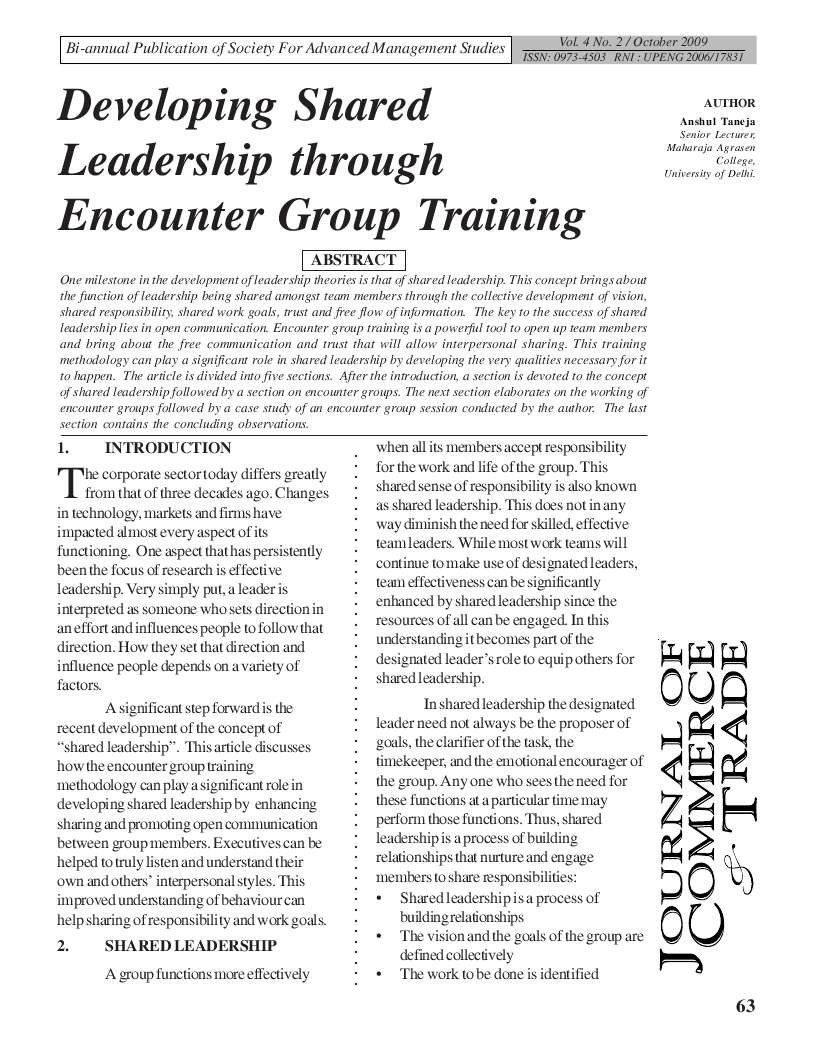Developing Shared Leadership through Encounter Group Training
DOI:
https://doi.org/10.26703/jct.v4i2.427Keywords:
Group Training, Training, Training and DevelopmentAbstract
One milestone in the development of leadership theories is that of shared leadership. This concept brings about the function of leadership being shared amongst team members through the collective development of vision, shared responsibility, shared work goals, trust and free flow of information. The key to the success of shared leadership lies in open communication. Encounter group training is a powerful tool to open up team members and bring about the free communication and trust that will allow interpersonal sharing. This training methodology can play a significant role in shared leadership by developing the very qualities necessary for it to happen. The article is divided into five sections. After the introduction, a section is devoted to the concept of shared leadership followed by a section on encounter groups. The next section elaborates on the working of encounter groups followed by a case study of an encounter group session conducted by the author. The last section contains the concluding observations.
Downloads
Metrics
References
Bradford, L.David; Burke, Wyatt Warner (2005), “Reinventing organization Development”, John Wiley and Sons publication
Jain, Mahaveer; Sarathi, Parth(2009) Annual Handbook of Human Resource Initiatives on T-Group, Manik Publications
Pearce, C. L. and Conger, J. A (2002) “Shared Leadership: Reframing the Hows and Whys of Leadership” Sage publications.
http://www.ahpweb.org/rowan_bibliography/chapter8.html
http://www.nurturingpotential.net/Issue7/Leader7b.htm#T-groups

Downloads
Published
How to Cite
Issue
Section
License
Copyright (c) 2009 Anshul Taneja

This work is licensed under a Creative Commons Attribution 4.0 International License.














